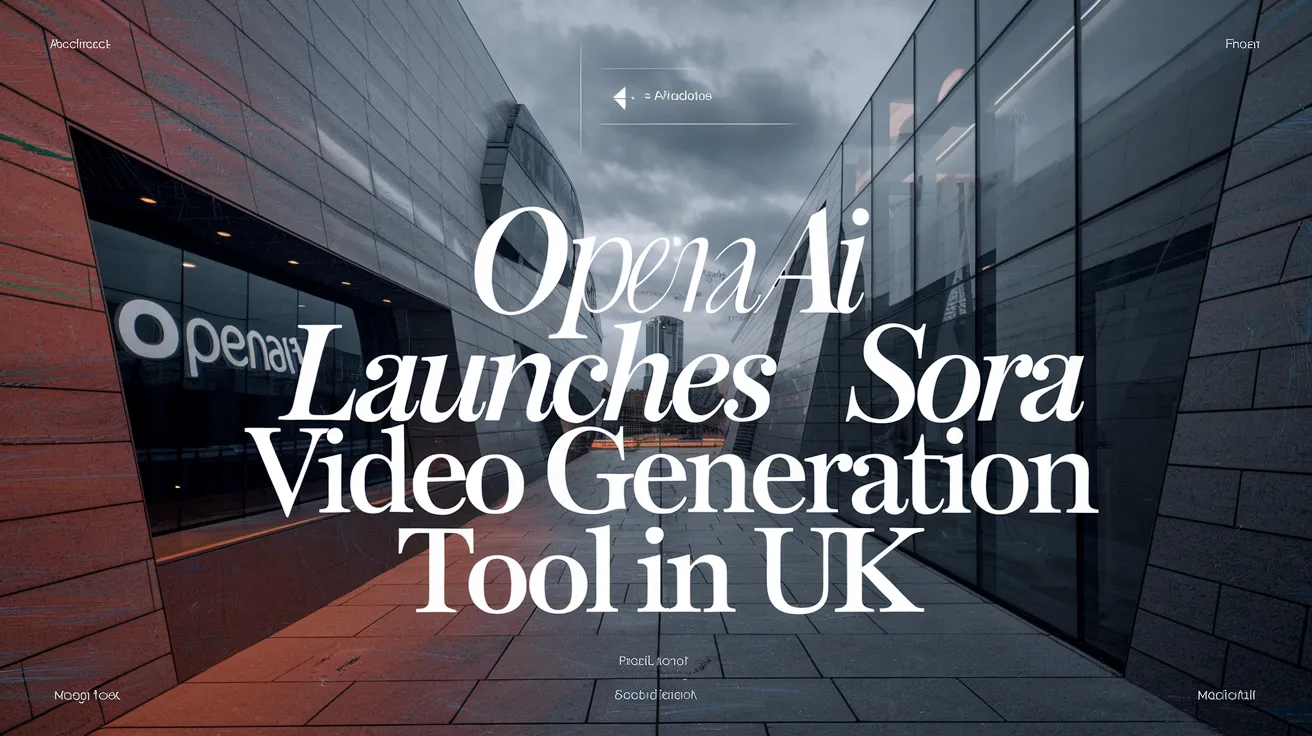OpenAI Launches Sora Video Generation Tool in UK

OpenAI, the company known for its development of ChatGPT, has officially launched its video generation tool, Sora, in the UK. This launch has arrived at a time of escalating tensions between the tech sector and creative industries, particularly concerning copyright issues.
Beeban Kidron, a prominent film director, emphasized that the rollout of Sora adds urgency to the ongoing copyright debate, particularly as the government faces backlash over proposals allowing AI companies to utilize artists’ work without consent. Such moves could significantly impact the livelihoods of creative professionals.
After being initially revealed last year, Sora has already stirred controversy, highlighted by film mogul Tyler Perry’s suspension of an $800 million expansion of his Atlanta studio over concerns regarding AI’s ability to bypass traditional filmmaking processes like set construction and location scouting. Previously launched in the U.S. in December, Sora is now accessible to UK users who subscribe to ChatGPT services.
Using Sora, users can create videos by simply entering prompts, such as requesting a scene set in a snowy Tokyo adorned with sakura petals. The platform can be accessed through its dedicated site, sora.com, where even users without a subscription can view various AI-generated video compilations.
Following Sora’s UK debut, examples of its application by European artists have been shared, including a notable work by British digital artist Josephine Miller. She expressed optimism about the tool’s potential to unlock new avenues for emerging creatives, indicating a shift in how artistic expression can be approached in the digital age.
Kidron’s concern over copyright issues is tied to the potential misuse of copyrighted material for training AI models like Sora, questioning the legality of such content usage without explicit permission. A statement from YouTube last year suggested that if copyrighted materials were used without authorization, it would violate their service terms. However, uncertainty remains as to whether YouTube content was in fact used in training Sora.
In terms of functionality, Sora allows users to create short clips ranging from five to twenty seconds, which can later be extended into longer videos. Users can choose different visual styles for their clips, ranging from ‘film noir’ to whimsical ‘balloon world’ effects. The generation time varies, with shorter clips taking about a minute at lower resolution, while high-resolution videos can take significantly longer.
Furthermore, Sora includes a storyboard feature, enabling users to edit prompts more closely to refine the outputs generated by the underlying AI technology.
OpenAI has maintained that its use of copyrighted material complies with legal standards, asserting that Sora was built utilizing diverse datasets, including readily available public data. The company has also acknowledged that the development of tools like ChatGPT relies heavily on access to copyrighted materials, bringing into question the shifting dynamics of technology and creativity in the modern age.